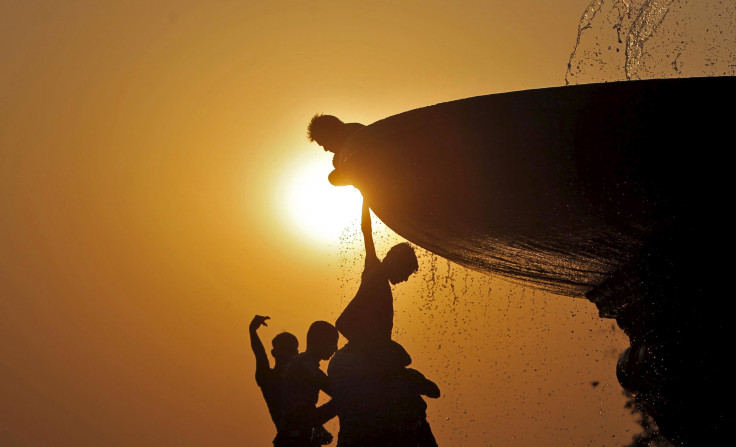India, Reeling Under An Intense Heat Wave, Records Its Hottest Temperature Ever

On Thursday, Phalodi — a city in the western Indian state of Rajasthan — recorded a searing temperature of 51 degrees Celsius (124 degrees Fahrenheit). This was the highest temperature ever recorded in the country, besting the 50.6 degrees Celsius (123 degrees Fahrenheit) recorded in the city of Alwar in 1956.
Phalodi in Rajasthan, India recorded 51.0 Deg C Temperature on 19 May, 2016, which is the highest ever recorded temperature in India.
— India Met. Dept. (@Indiametdept) May 19, 2016
While May and June have historically been the hottest months in the country, this year, many regions have recorded temperatures of over 104 degrees Fahrenheit — triggering a severe heat wave and causing a drought that has affected over a quarter of the India’s 1.25 billion population.
Respite from the heat is only expected in mid-June, with the arrival of monsoon rains.
Over the past months, water scarcity has forced authorities in some states to impose mandatory water rationing. In the Latur district of Maharashtra, for instance, a prohibitory order on gatherings of more than five people near water storage tanks was imposed. A train carrying half a million liters of water was also sent to the drought-hit district.
The unprecedented spike in temperatures has also caused a surge in electricity consumption, which, in turn, has caused frequent power cuts in many parts of the country.
“This is an unprecedented situation,” Himanshu Thakkar, coordinator for the New Delhi-based South Asia Network on Dams, Rivers and People, told Bloomberg. “The water challenges and its resulting problems in power production are something we have never seen before.”
In the capital city of New Delhi, power consumption topped 6,400 megawatts on Thursday, breaching the 6,000 MW mark for the first time.
“Delhi’s peak power demand is more than the combined demand of cities like Mumbai (3,700 MW) and Kolkata (2,100 MW). Chennai has a demand of around 2,000 MW, but Delhi’s is more than double of that,” Praveer Sinha, managing director of the electric utility Tata Power Delhi Distribution Limited, told the Hindu, a local newspaper.
Last year, an intense heat wave caused the deaths of over 2,000 people across the country. This year, which NASA says is likely to be the hottest on the books, the death toll so far stands at nearly 200.
© Copyright IBTimes 2024. All rights reserved.












